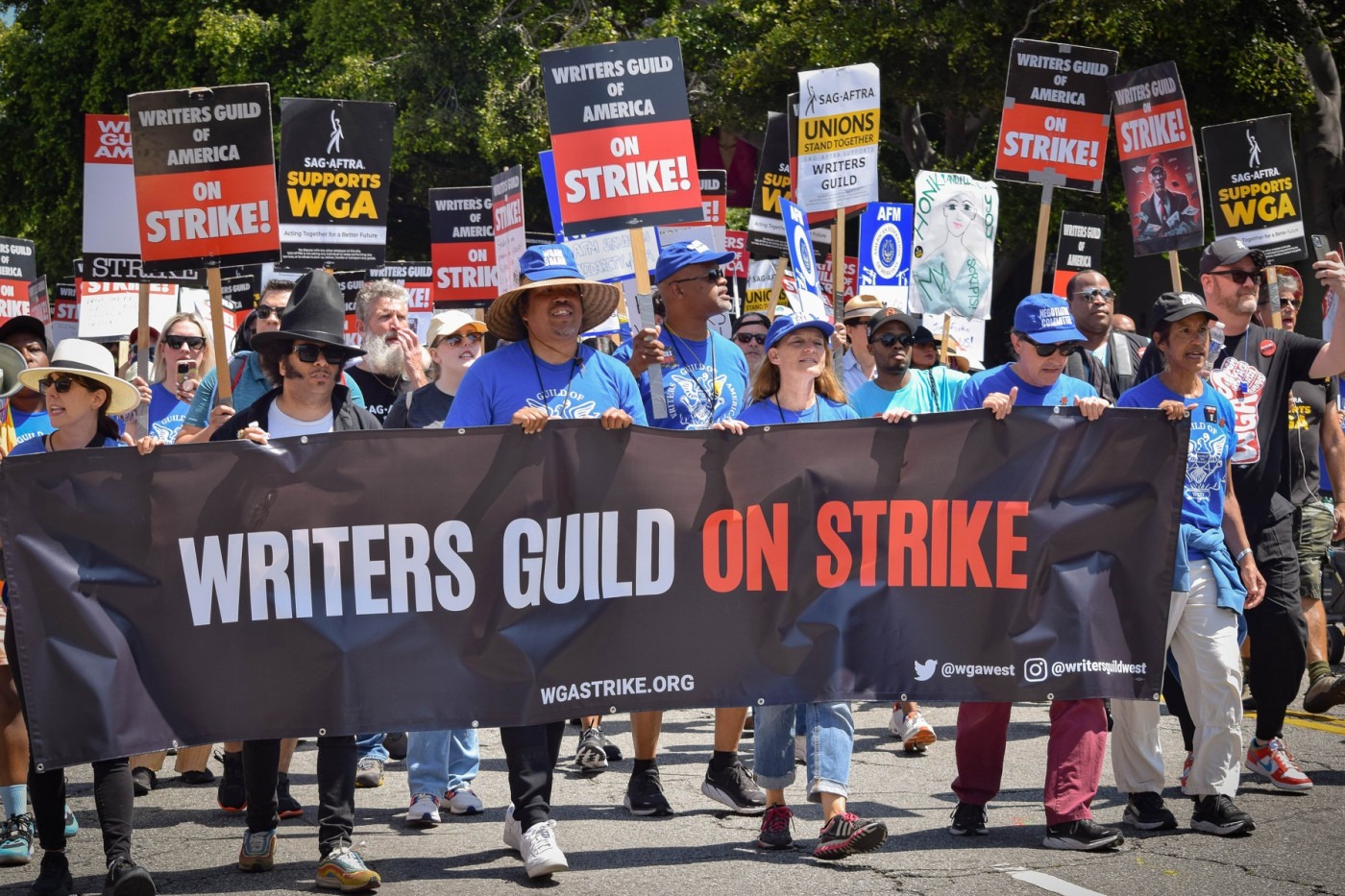SAG-AFTRA and WGA: Hollywood strikes back
What’s actually happening?
On 14 July 2023, the Screen Actors Guild and American Federation of Television and Radio Artists (SAG-AFTRA) announced that the union would be joining the Writers Guild of America (WGA) by going on strike following an irreconcilable dispute surrounding “economic fairness, residuals [and] regulating the use of artificial intelligence” with the Alliance of Motion Picture and Television Producers (AMPTP).
This is an unprecedented show of industrial action in Hollywood, and the first-time actors and writers have gone on strike together since 1960. SAG-AFTRA members had already authorised strike action if necessary, meaning that as soon as these negotiations broke down, the strike began immediately, leading to a mass exodus of actors from the premiere of Oppenheimer in compliance with the union’s no-promotion strike rule including Cillian Murphy and Emily Blunt.
Writers are receiving less work for less pay
Striking because of streaming?
Streaming services typically commission shows between six and ten episodes a season (less than half a typical broadcast show), meaning that writers are receiving less work for less pay, with the median pay for streaming writers 46% lower than those on broadcast shows. Gaps between seasons of streamed shows are also far longer than broadcast television (think of the THREE-YEAR gap between seasons three and four of Stranger Things) meaning that work for writers is harder to find. Writers are receiving less compensation from streaming services, whilst the possibility for career advancement in the profession is also being inhibited by the increased use of ‘mini’ writer rooms by streaming services that typically feature a smaller number of writers.
Critics of the WGA strikes have been quick to blame the pushing of so-called ‘left-wing woke propaganda’ scripts in television and film as the reason why pay and working conditions for writers have fallen so dramatically, rather than focusing on the major pay disparities between writers and their executives. Writers aren’t being paid less by streaming services because they have written thoughtful and progressive scripts, they are being paid less because it’s an easy cost-cutting method that protects the high wages of studio executives.
AI certainly has its uses in some areas of society, but in the generation of art, the most human of endeavours, it is nothing more than a dystopian instrument
Artificial intelligence: destroying the human aspect of film and TV?
Another concern of both the WGA and SAG-AFTRA is the increased use of Artificial Intelligence when filming and writing. Artificial Intelligence is able to generate thousands of lines of scripts in a matter of seconds and has already been used in the creation of the title sequence to the Disney+ show Secret Invasion. It has also been reported that studios have been using generative AI software to essentially ‘copy and paste’ an extra’s likeness into different scenes rather than use the actor themselves – the studio only has to pay a day’s wages for a day’s work, rather than a week of work.
This has sinister implications for the future of movies and television shows, with Breaking Bad actor Bryan Cranston taking to the picket lines to criticise Disney CEO Bob Iger, shouting to thunderous applause that “We will not have our jobs taken away and given to robots”. AI certainly has its uses in some areas of society, but in the generation of art, the most human of endeavours, it is nothing more than a dystopian instrument used by studios to avoid paying real people real wages.
Your support is needed now more than ever
Victory to the strikers!
In an interview, Jamie Lee-Curtis shared her thoughts on the importance of movies, calling them a ‘spectacular translator of shared humanity’. The medium of film and television can bring people together in incredible ways, whether that’s groups of people wearing suits to watch Minions: Rise of Gru, or something as big as paying a combined total of over $2 billion to watch Barbie and Oppenheimer on the same weekend. Even in 1986, a whopping 54% of the UK’s population tuned in to watch the Eastenders “Christmas Day Special”.
Clearly, little else can unite millions of people in the ways that film and television can, and the Hollywood strikes represent this communal spirit of togetherness. We must show solidarity and come together in support of striking actors and writers, in the same way that they have helped bring us together for so many years. In today’s warped media landscape, your support is needed now more than ever.

Comments